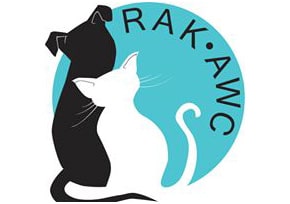- Al Jazirah Al Hamra, Ras al Khaimah
- rakawc@psd.rak.ae
- 072433184 / 056 357 6908
People and dogs have lived together for over 10,000 years. Dogs are kept for companionship, guarding, herding and also as assistance dogs for people with sight hearing, or physical difficulties.
In order to stay healthy and happy, a dog needs
- a balanced diet
- exercise
- veterinary care
- companionship
WHERE TO START
Settling a puppy into your home - READ MORE ON 'DOG TRUST' WEBSITE
WHERE YOUR DOG LIVES
- dog that lives outside needs a shelter to give protection from the heat
- a dog needs comfortable bedding
- if your dog has to be tethered, use a long-running line. Fixed chains or ropes can become tangled around the dog causing injury.
FOOD & WATER
- a dog needs a balanced diet of protein and fiber. Household scraps will not be sufficient to maintain good body weight or strong muscles.
- sharp bones can be dangerous, as they may become stuck in the throat or cause problems if swallowed.
- freshwater should be given daily in a clean bowl.
EXERCISE
- a dog should not be permanently tied up, he needs regular exercise.
- a walk each day, and perhaps a game with a stick or ball, will help to keep your dog alert, active and relieve boredom.
- a bored dog may bark excessively, annoying neighbors.
SOCIALISATION
MORE ON DOG TRUST WEBSITE
HYGIENE
- a dog that is kept in dirty conditions can become infested with worms, ticks, fleas, or lice. Ask your vet for advice.
- keep your dog and his living area clean.
VACCINATIONS
- dogs are vulnerable to many diseases which can be dangerous and costly to treat.
- vaccination helps prevent illness and reduces the risk of infection to other dogs.
GROOMING
- regular brushing helps to keep your dog clean and free of tangles and provides an opportunity to check for unwanted parasites.
- grooming helps to get your dog used to be handled.
BREEDING
- every year hundreds of thousands of dogs are destroyed because there are not enough suitable homes available for them.
- female dogs can produce many puppies every year. In six years a pair of dogs and their offspring can produce 67,000 puppies.
- by constantly producing and rearing puppies, the health of a female dog can suffer.
- pregnant and lactating female dogs need extra food.
- puppies generally suckle from their mothers for about three weeks, gradually starting to eat additional food.
- a female dog is naturally protective of her young and can be aggressive at this time. A quiet place should be provided for them.
- to prevent unwanted puppies have your dog spayed/neutered – an operation performed by a vet
SPAYING/NEUTERING
- modern veterinary equipment and drugs, make surgery safe, painless, and recovery quickly.
- ask your vet when to have your dog spayed/neutered.
- your dog does not need to have a litter before she is spayed.
- early age neutering from eight weeks of age is now accepted as a positive action.
- once a female dog has been neutered she will never come into season again and unwanted male dogs will keep away.
- in a female, spaying can reduce the risk of mammary tumors.
- in a male, neutering can help to reduce aggression and roaming.
CONSULT YOUR VET
Remember your vet can advise you on:
- diet
- training your pet
- treatment against parasites
- vaccination
- spaying/neutering
- any other health concerns
DOG FAQ's
My dog is always barking and it is upsetting my neighbors, what can I do?
Our colleagues at Dog's Trust have made a very informative brochure on the subject of barking.
- How to safely walk your dog on a leash
- Keeping your dog safe in a playpen, outdoor kennel, or electric dog fence
- How train your dog to go in a dog crate and on a dog bed
- How to make sure your dog is eating safe and nutritious dog foods (and using an automatic dog feeder)
- How to make sure your dog is properly groomed (with a dog brush, hairdryer, shampoo, and nail clippers)
- Keeping your dog healthy with CBD Oil, Calming Aids, Joint Supplements, and other medications
- How to protect your dog from fleas with a flea collar and flea treatments
- Keep your dog entertained with an automatic fetch machine, interactive toys, and puzzle toys.
